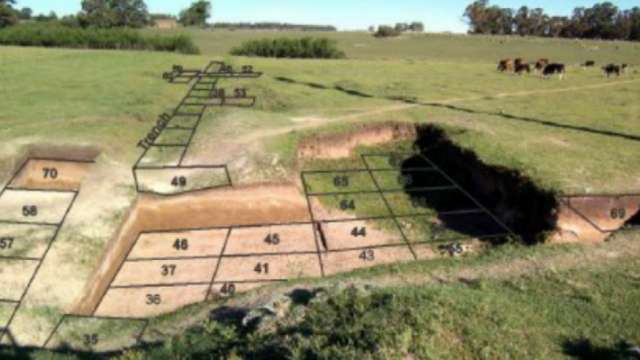Details in the study include the fact that about 14,064 years ago, ancient people “hunted/scavenged an extinct horse (Equus neogeus) and giant ground sloth (Megatherium americanum), probably along the border of the temporary lake (or another body of water) located near the site,” they wrote in the study, which was published in the journal PLOS ONE.
And in a sign that there may have been a designed butchering area, the researchers found a concentration of animal bones in a specific spot.
The scientist behind the study acknowledge that some of their findings could be explained without the presence of humans, but that it’s most likely that ancient people were in fact involved.
Ultimately, the researchers conclude in the study that “the arrival of Homo sapiens into the Southern Cone at 14,000 years ago represents the last step in the expansion of modern humans throughout the world and the final continental colonization.”
/FoxNews/
More about:
















































